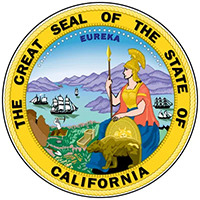 The news: The House Judiciary Committee took up legislation Wednesday targeting the monopolistic and anticompetitive practices of US tech giants, per Bloomberg. This first notable bipartisan push is aimed at reigning in Amazon, Apple, Facebook, and Google’s market dominance. Big Tech lobbyists argue that, if passed into law, the bills would curtail innovation and could upend user privacy, as well as hurt small businesses relying on their services
The news: The House Judiciary Committee took up legislation Wednesday targeting the monopolistic and anticompetitive practices of US tech giants, per Bloomberg. This first notable bipartisan push is aimed at reigning in Amazon, Apple, Facebook, and Google’s market dominance. Big Tech lobbyists argue that, if passed into law, the bills would curtail innovation and could upend user privacy, as well as hurt small businesses relying on their services
Government
Global economic outlook 2026

As anticipated in our last global economic outlook, elections around the world have driven notable policy changes that altered the trajectories of inflation, borrowing costs, currency values, and trade and capital flows in 2025. One significant development was that the United States raised significant barriers to trade, disrupting supply chains and creating financial market volatility. Since then, it has struck trade deals with numerous countries, reinstating some predictability in those trading relationships, albeit at higher costs. Restrictive US trade policy has also pushed other countries closer together, with numerous trade deals being inked among non-US countries.
Inflation is only beginning to bite

In a blog about inflation you might expect some reference to an obscure “law” of economics. I’m going to pivot and refer to an obscure law that doesn’t find its genesis in economic theory — Hofstader’s Law: “It always takes longer than you expect, even when you take into account Hofstader's Law.”
Why the Work of the Immigrant Archive Project is More Important Now Than Ever

In a time when the contributions and struggles of immigrant communities are being systematically erased from public consciousness, the Immigrant Archive Project (IAP) stands as a powerful counterforce—preserving the stories that define America’s rich and diverse narrative. The IAP, the leading oral history project documenting the modern immigrant experience, is more than a repository of memories. It is an essential safeguard against the dangers of historical erasure, and its work has never been more crucial than it is today. By Tony Hernandez - Founder of The Immigrant Archive Project
Governor Newsom Signs Major Legislation to Bolster Ethnic and Community Media Through the State’s Advertising Power

In a decisive move to strengthen ethnic and community media, Governor Gavin Newsom signed AB 1511 - authored by Assemblymember Miguel Santiago (D-Los Angeles) - into law, mandating that state agencies develop plans to increase their advertising spending in media outlets serving California's diverse populations. The law requires agencies to annually report on their progress to ensure transparency and accountability. Sponsored by the Latino Media Collaborative, AB 1511 represents a key effort to direct the state's advertising dollars towards ethnic and community media, creating a sustainable foundation for these outlets to thrive.
FCC’s Gomez Talks Regulation, AM, and EAS In Keynote Address

“I learned the perspectives of the regulated firsthand. I understand that the right level of regulation reflects the circumstances before us and specific facts matter a lot.” Those words from FCC Commissioner Anna Gomez, in an address to Hispanic broadcasters on Wednesday.
Largest Year-to-Year Increase in Over 20 Years for Public School Spending Per Pupil

Nationally, public school spending per student rose 8.9% from $14,358 in FY 2021 to $15,633 in FY 2022, according to new data from the 2022 Annual Survey of School System Finances released today by the U.S. Census Bureau. This represents the largest percentage increase in public school spending per pupil in the 50 states and the District of Columbia in over 20 years. Statistics are not adjusted for inflation or cost-of-living differences between geographic areas.
Public Trust in Government: 1958-2023

Public trust in the federal government, which has been low for decades, has returned to near record lows following a modest uptick in 2020 and 2021. Currently, fewer than two-in-ten Americans say they trust the government in Washington to do what is right “just about always” (1%) or “most of the time” (15%). This is among the lowest trust measures in nearly seven decades of polling. Last year, 20% said they trusted the government just about always or most of the time. Among Asian, Hispanic and Black adults, 23%, 23% and 21% respectively say they trust the federal government “most of the time” or “just about always” – higher levels of trust than among White adults (13%).
Americans’ Dismal Views of the Nation’s Politics [REPORT]

Americans have long been critical of politicians and skeptical of the federal government. But today, Americans’ views of politics and elected officials are unrelentingly negative, with little hope of improvement on the horizon.
Latinos in the U.S. have the fifth-largest GDP in the world [REPORT]

The findings of the latest U.S. Latino GDP Report, produced annually by the UCLA Center for the Study of Latino Health and Culture and California Lutheran University’s Center for Economic Research and Forecasting, show that even amid ongoing COVID-19 pandemic conditions in 2021, the U.S. Latino GDP grew by an inflation-adjusted 7.1%, surpassing the $3 trillion mark for the first time.
Big Tech struggles to control narrative as antitrust bills aim to level the playing field for innovation
The world regulates Big Tech while U.S. dithers
 Tech giants are facing increasingly hostile foreign governments that are taxing their profits, attempting to halt their acquisitions, labeling them as monopolies and passing laws to limit their powers. Why it matters: Big Tech’s international policy challenges mean companies are positioning themselves for regulatory fights overseas while the U.S. is still struggling to figure out what it wants to do.
Tech giants are facing increasingly hostile foreign governments that are taxing their profits, attempting to halt their acquisitions, labeling them as monopolies and passing laws to limit their powers. Why it matters: Big Tech’s international policy challenges mean companies are positioning themselves for regulatory fights overseas while the U.S. is still struggling to figure out what it wants to do.
FTC Sues Facebook for Illegal Monopolization
 The Federal Trade Commission sued Facebook, alleging that the company is illegally maintaining its personal social networking monopoly through a years-long course of anticompetitive conduct. Following a lengthy investigation in cooperation with a coalition of attorneys general of 46 states, the District of Columbia, and Guam, the complaint alleges that Facebook has engaged in a systematic strategy—including its 2012 acquisition of up-and-coming rival Instagram, its 2014 acquisition of the mobile messaging app WhatsApp, and the imposition of anticompetitive conditions on software developers—to eliminate threats to its monopoly. This course of conduct harms competition, leaves consumers with few choices for personal social networking, and deprives advertisers of the benefits of competition.
The Federal Trade Commission sued Facebook, alleging that the company is illegally maintaining its personal social networking monopoly through a years-long course of anticompetitive conduct. Following a lengthy investigation in cooperation with a coalition of attorneys general of 46 states, the District of Columbia, and Guam, the complaint alleges that Facebook has engaged in a systematic strategy—including its 2012 acquisition of up-and-coming rival Instagram, its 2014 acquisition of the mobile messaging app WhatsApp, and the imposition of anticompetitive conditions on software developers—to eliminate threats to its monopoly. This course of conduct harms competition, leaves consumers with few choices for personal social networking, and deprives advertisers of the benefits of competition.
Advertising Disclosures Guidance for Online Influencers [REPORT]
![]() The Federal Trade Commission has released a new publication for online influencers that lays out the agency’s rules of the road for when and how influencers must disclose sponsorships to their followers.
The Federal Trade Commission has released a new publication for online influencers that lays out the agency’s rules of the road for when and how influencers must disclose sponsorships to their followers.
Endorsement Guides Review [REPORT]
![]() American families and small businesses are rightfully skeptical of traditional advertising, which is clearly designed to persuade or manipulate us. In an effort to make advertising appear more authentic, companies are increasingly pouring marketing dollars into social media influencers: the individuals who promote products, services, and brands to those who follow them online.
American families and small businesses are rightfully skeptical of traditional advertising, which is clearly designed to persuade or manipulate us. In an effort to make advertising appear more authentic, companies are increasingly pouring marketing dollars into social media influencers: the individuals who promote products, services, and brands to those who follow them online.
40% of Older Americans Rely Solely on Social Security for Retirement Income [REPORT]
 Only a small percentage of older Americans, seven percent, receive income from Social Security, a defined benefit pension, and a defined contribution account. Retirement income from these three sources is widely considered to be the ideal situation to ensure retirement security, particularly for the middle class. Retirees with these three sources of income are far less likely to face poverty and economic hardship.
Only a small percentage of older Americans, seven percent, receive income from Social Security, a defined benefit pension, and a defined contribution account. Retirement income from these three sources is widely considered to be the ideal situation to ensure retirement security, particularly for the middle class. Retirees with these three sources of income are far less likely to face poverty and economic hardship.
U.S. Census Bureau Launches First 2020 Census Ads Campaign
 The U.S. Census Bureau launched its first set of advertisements for the 2020 Census in Alaska this week, about one month ahead of the kick off to the 2020 Census in remote Alaska in January 2020. The advertisements will inform those living in approximately 220 Alaska Native villages that a census taker will soon visit their home to count them in the 2020 Census. For the rest of Alaska, and the rest of the country, the 2020 Census begins in mid-March.
The U.S. Census Bureau launched its first set of advertisements for the 2020 Census in Alaska this week, about one month ahead of the kick off to the 2020 Census in remote Alaska in January 2020. The advertisements will inform those living in approximately 220 Alaska Native villages that a census taker will soon visit their home to count them in the 2020 Census. For the rest of Alaska, and the rest of the country, the 2020 Census begins in mid-March.
45% Know That Census Data Guide Community Funding Decisions
 Knowing that the census guides how much money a community gets from the government is the most important reason for people to respond to the census, according to results from a 2018 Census Bureau survey.
Knowing that the census guides how much money a community gets from the government is the most important reason for people to respond to the census, according to results from a 2018 Census Bureau survey.
New “Privacy for America” Coalition Calls for Strong Data Privacy Protections for All…
 Top policy experts and trade organizations today launched the new “Privacy for America” coalition, which will work with Congress to support enactment of groundbreaking comprehensive federal consumer data privacy and security legislation.
Top policy experts and trade organizations today launched the new “Privacy for America” coalition, which will work with Congress to support enactment of groundbreaking comprehensive federal consumer data privacy and security legislation.
Census Bureau Unveils 2020 Census Communications Campaign Platform
 As promotional and outreach activities are ramping up across the nation ahead of the 2020 Census — from establishing local and state complete count committees, to diverse partners coming together to reduce the undercount of children and other hard to count populations — tthe U.S. Census Bureau announced its long-planned communications campaign platform: “Shape your future. START HERE.”
As promotional and outreach activities are ramping up across the nation ahead of the 2020 Census — from establishing local and state complete count committees, to diverse partners coming together to reduce the undercount of children and other hard to count populations — tthe U.S. Census Bureau announced its long-planned communications campaign platform: “Shape your future. START HERE.”
2020 Census Media Vendor Day
 VMLY&R announced the 2020 Census Media Vendor Day for the 2020 U.S. Census Paid Media Campaign. The event is designed to be accessible for media outlets that cover a wide range of audiences, demographics, and channels, as well media outlets that are small businesses, and women- or minority-owned.
VMLY&R announced the 2020 Census Media Vendor Day for the 2020 U.S. Census Paid Media Campaign. The event is designed to be accessible for media outlets that cover a wide range of audiences, demographics, and channels, as well media outlets that are small businesses, and women- or minority-owned.


























